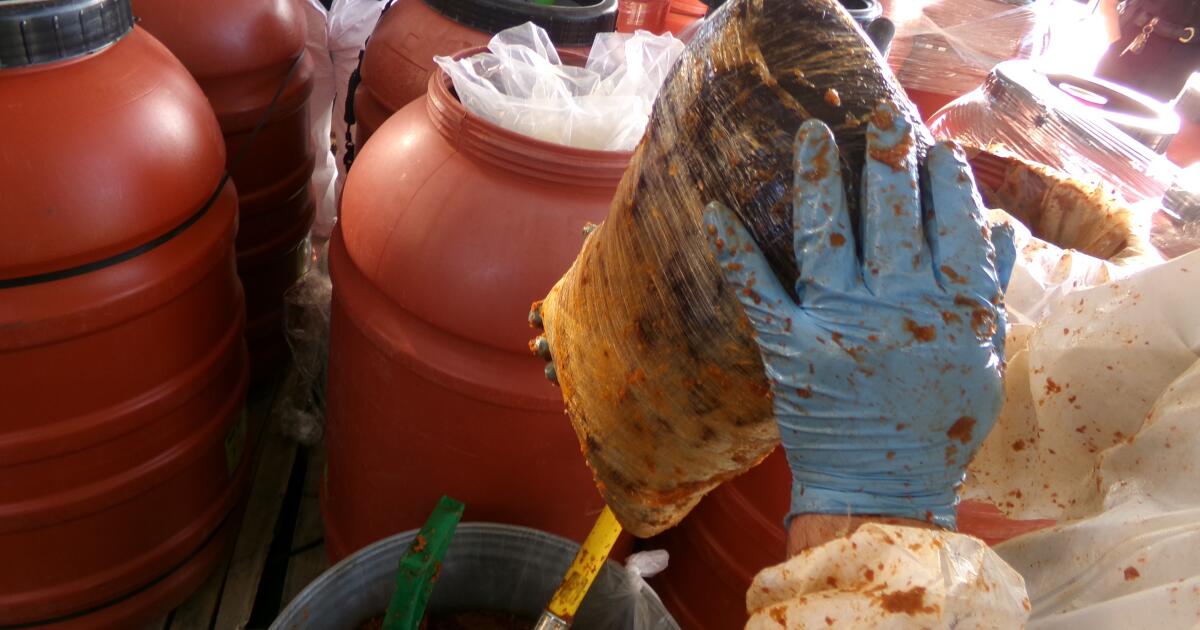They covered themselves with hazmat suits, gloves and masks and put plastic bags over their boots. That’s how dangerous the substance was that U.S. Customs and Border Protection officers were examining Wednesday morning.
A cadre of agents — veterans who had seized fentanyl, heroin and other illicit narcotics in previous raids — dug deep, hands and boots in a sea of pungent material, before hitting pay dirt.
What agents said they found was almost 2 tons of methamphetamine and cocaine — valued at $10.4 million — buried within dozens of vats of fiery jalapeño paste. The cargo was seized from a commercial tractor-trailer near the Otay Mesa border.
“It was an extremely spicy situation,” Michael Scappechio, a CBP spokesperson, told The Times. “You never really know what you’re dealing with just in terms of dangerous narcotics and then you throw in there all that organic material; we had to break out the full PPE,” or personal protective equipment.
A 28-year-old man with valid border-crossing credentials was stopped Wednesday around 10:36 a.m. by agents while hauling his cargo. The individual was a Mexican national, according to Scappechio.
His electronic shipment manifest listed only vats of jalapeño paste among his consignment.
Customs officers decided to review the man’s haul.
In total, 349 packages of methamphetamine and cocaine weighing 3,684 pounds were seized.
(U.S. Customs and Border Protection)
“We won’t expose the reasons that led to the further examination,” Scappechio said, “but agent suspicion is often used.”
The truck was moved from the border to the nearby screening facility, where a K-9 unit then screened the cargo and alerted agents for a full inspection.
There, they poured out barrel-sized drums of jalapeño paste, removing 349 suspicious packages from the vats. About 3,161 pounds of methamphetamine and 523 pounds of cocaine were extracted from the haul.
The driver was turned over to the Department of Homeland Security for arrest and processing while the CBP seized the drugs and trailer.
Never underestimate the power of a dog’s nose.
“Our K-9 teams are an invaluable component of our counter-narcotics operations, providing a reliable and unequaled mobile detection capability,” said Rosa Hernandez in a statement. The Otay Mesa port director said the CBP had stepped up its efforts “to secure communities and stifle the growth of transnational criminal organizations, one seizure after another.”
Last month, San Diego’s field office seized more than 14,000 pounds of narcotics at California’s land borders.
But what’s going to happen to all that jalapeño paste?
Scappechio said he couldn’t say for certain but noted that the agency was “not going to hold organic material for too long” before destroying it. He did say the owner could petition to retrieve the property.
“Since the jalapeño paste was laden with dangerous drugs,” Scappechio said, “I wouldn’t hold my breath.”
This story originally appeared on LA Times

